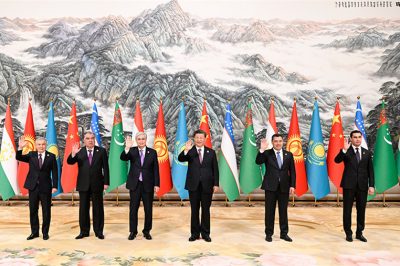Chinese President Xi Jinping hosted the China-Central Asia summit in Xi’an, marking a significant milestone in the relations between China and the Central Asian countries. The conference, attended by the heads of state from Kazakhstan, Kyrgyzstan, Tajikistan, Turkmenistan, and Uzbekistan, showcased a new format of interaction aimed at deepening cooperation and fostering regional stability.
President Xi Jinping warmly welcomed the Central Asian leaders to China, emphasizing the importance of bilateral meetings and the China-Central Asia summit in strengthening ties between the two regions. The Chinese President outlined comprehensive development plans and critical discussion areas, highlighting the commitment to enhancing economic cooperation, infrastructure development, and maintaining regional stability.
China’s proactive approach in initiating this new format at the Heads of State Summit underscores its strong determination to forge closer ties with the Central Asian republics. The establishment of the C+C5 mechanism in 2019 laid the foundation for enhanced cooperation, and now, with meetings at the highest level, China seeks to solidify its partnerships and foster deeper engagement.
One of the primary motivations behind this new format is China’s aim to prevent destabilization within its Xinjiang Province in Western China. Beijing is committed to working closely with the Central Asian countries to maintain stability and support the existing regimes. The China-Central Asia summit serves as a platform for collaboration and joint efforts to address common challenges and promote sustainable development.
Beijing’s steadfast support for the Central Asian countries is rooted in its strategic partnership with the region. China recognizes the importance of stability and the non-interference principle in the internal affairs of these nations. Similarly, Moscow, with its growing economic and political dependence on Beijing, continues to endorse the Chinese role in Central Asia. This alignment of interests ensures a conducive environment for collaboration and cooperation.
China’s investment in Central Asia has been steadily increasing, with a total investment of approximately US$40 billion at the end of 2020. Kazakhstan has received a significant portion of these investments, amounting to US$21.4 billion. Chinese businesses, numbering 7,700, are actively operating in the region, further strengthening economic ties and contributing to the development of local economies.
During the summit, President Xi Jinping expressed his intention to increase China’s trade with the Central Asian countries to US$70 billion annually, showcasing China’s commitment to expanding economic cooperation and trade relations. The summit discussions focused on infrastructure development, trade facilitation measures, and other initiatives to promote regional connectivity and prosperity.
The China-Central Asia Summit sets the stage for a new era of cooperation and development between China and Central Asian countries. By fostering closer ties, enhancing economic cooperation, and maintaining regional stability, China is poised to become an essential partner in the growth and prosperity of Central Asia.
International Relations Scholar interested in National Security strategies, with a good focus on Geo-Politics, Foreign Policy, and Public & Cultural Diplomacy.








